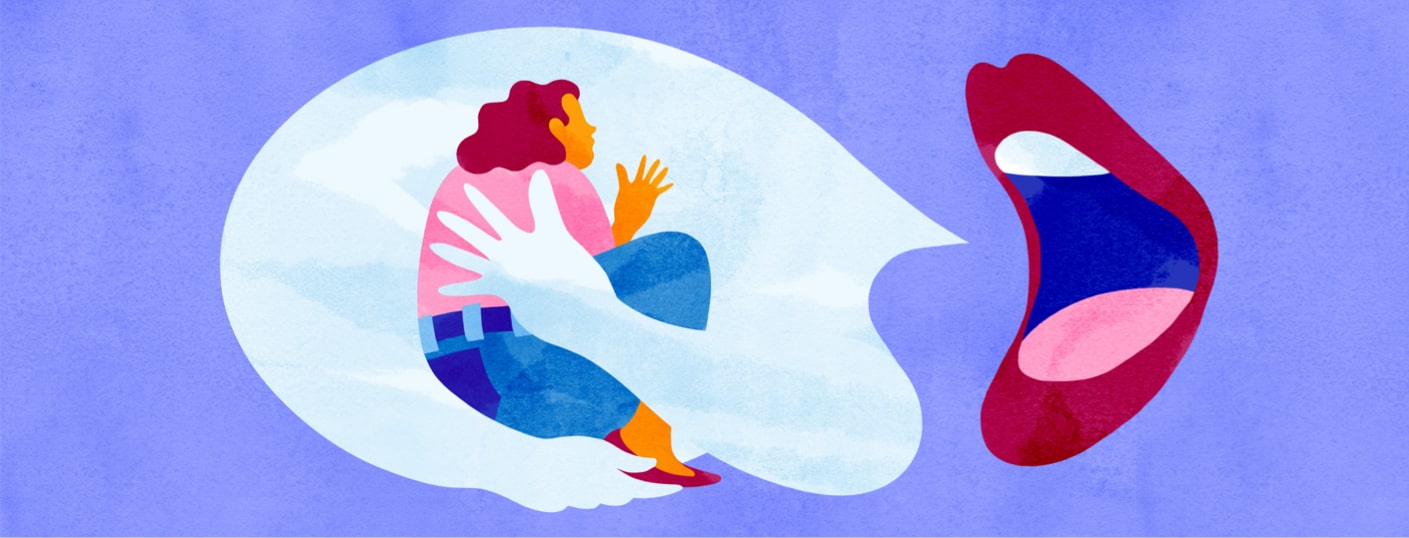Tips for Those Who Have Just Been Diagnosed With IBD
After being diagnosed with any chronic illness, let alone one that is rarely talked about (ulcerative colitis), I wasn't sure exactly where to turn. I was 21 years old, so very few of my friends had a chronic illness – or if they did, they didn’t broadcast it – and thus couldn't advise me on what to do. My doctor was kind but saw things purely from a medical perspective and never really considered the impact on my social life and sense of self. In the end, I navigated much of those early years alone and confused.
If I could speak to my younger self, I would tell her so many things I think would have helped her understand her condition better.
Diagnosed with Crohn's or colitis: Now what?
Have patience when trying new treatments.
I was first put on mesalamine for my ulcerative colitis and it actually ended up working well for a few years. However, it took about 4 months for me to reach remission. It was a miserable time, and as a college student, I struggled a lot. I expected the medication to fix me within 24 hours, not realizing that chronic illness is a lot harder to manage than a simple cold.
Since then I have been on a few different treatments and each one has taken time before I have seen results. I now try to give my body a few months to get used to a new medication or diet before I decide if it's working or not. (Excluding steroids, which my doctors mentioned should work quickly rather than slowly.) While this can be physically exhausting, it does help my mental health, so I am not putting so much pressure on a quick recovery.
Ask questions and get all the information.
Then figure out what works for you.
When I was first diagnosed, I learned that there is both a lot of information available and also very little. I found that most people with IBD are happy to share their experiences and give tips — but I also found that each body is different and one person's treatment plan isn't always perfect for me. In my case, this is especially true with diet.
At this point, I do my best to get information from a variety of places. I ask my friends in the IBD community about their experiences, I have gone to holistic practitioners, I reach out to my doctor, and I also read peer-reviewed articles on Google Scholar. It is important to keep an open mind when hearing about new treatments (both allopathic and naturopathic) and ask questions. At the same time, I have also discovered that many treatments do not work for me and that it is absolutely fine to let go of those and move on.
We all eat trigger foods sometimes.
Don't beat yourself up.
I spent a lot of time thinking I had to do everything perfectly when I was first diagnosed with UC. If I had a bad day in the bathroom I would obsessively think about what caused it and beat myself up over "making a mistake." I put a lot of pressure on myself to do everything I could not to get sick.
Over time I realized that everyone eats things that make them feel bad, especially on holidays. Though I do have to be more careful than someone without IBD, it is human to make a less healthy choice every so often, especially when my triggers aren't always the same day to day. Now I try my best to make colon-friendly choices, but if I really can't resist something or eat something less than ideal, I just let myself shrug it off. One bad day in the bathroom isn't worth the toll on my mental health.
Get comfortable with the unknown.
Prior to my colitis diagnosis, I planned everything. I was sure I knew where my life was going. After the diagnosis, all this was derailed. My senior spring in college looked nothing like what I expected, and it hurt a lot. I was frustrated by how everyone else was able to anticipate what their lives would look like while I couldn't. So much was so unpredictable.
Unfortunately, none of that has changed. I have had hospitalizations I didn't expect and flares that made months of my life terrible. I have also done surprisingly well on certain medications and have been able to eat things I didn't expect to here and there.
What has changed, though, is my capacity to tolerate that I don't know what will come next. Instead, I focus on what is happening now. I feel my emotions, whether they are happy or sad, and I let myself live in this moment. In the end, I don't know if things will get worse or get better, but I can't waste time worrying about that. This philosophy has made me far less anxious, which means I can spend more time enjoying life.
Passing on what I've learned to the newly diagnosed
Part of the reason that I speak and write about my IBD is so that I can share the lessons I've learned with those who have just been diagnosed. While I can't go back in time and give my younger self advice, I do hope that others who are going through the difficult journey of learning about their chronic illness can find solace in my stories.

Join the conversation